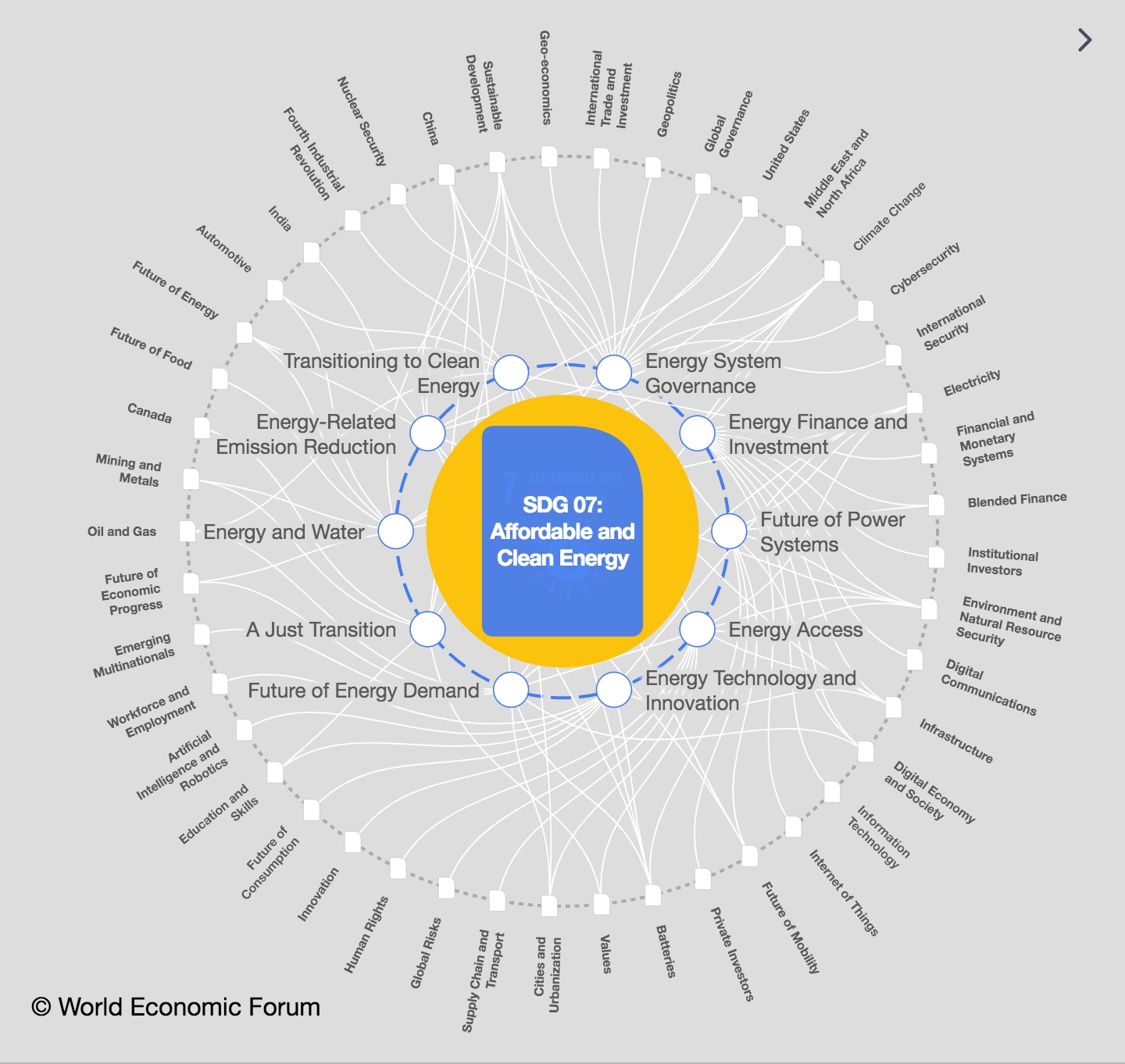The EU looks to speed up renewable energy projects: What you need to know about the global energy crisis this week

The European Commission is proposing an emergency measure to simplify the process of issuing permits for renewable energy projects. Image: Unsplash/Zbynek Burival
Roberto Bocca
Head of Centre for Energy and Materials; Member of the Executive Committee, World Economic Forum
Get involved with our crowdsourced digital platform to deliver impact at scale
Stay up to date:
SDG 07: Affordable and Clean Energy
Listen to the article
- This weekly round-up brings you the latest on developments in the global energy sector.
- Top energy stories: EU proposes emergency measures to speed up renewable energy projects; Increased gas use is threatening climate goals; More countries join offshore wind-power alliance.
- For more on the World Economic Forum’s work in the energy space, visit the Shaping the Future of Energy, Materials and Infrastructure Platform.
1. News in brief: Energy stories from around the world
Nine countries have joined an international alliance to scale up offshore wind energy, according to Euronews. Belgium, Colombia, Germany, Ireland, Japan, the Netherlands, Norway, the UK, and the US signed up to the Global Offshore Wind Alliance at COP27 in Egypt.
The International Atomic Energy Agency (IAEA) has opened an exhibit at COP27 to promote the climate benefits of nuclear energy – the first time it has done so in the 27-year history of the event. “When you talk about nuclear, you're talking about a confirmed energy producer which is not part of the problem, but rather part of the solution," IAEA Director-General Rafael Mariano Grossi told Reuters. Several companies are promoting nuclear fusion as “the real game-changer”
Billions of euros in aid given to coal regions in the European Union have all but failed to spearhead an effective climate transition, say EU auditors. "Russia's invasion of Ukraine in 2022, and its effects on the energy market, may also result in delays in the transition away from coal," the European Court of Auditors said.
The organization responsible for the reliability of the US and Canadian power grids says energy supply could be tight across a large portion of North America on the coldest days this winter. The US has been beset by extreme weather events in recent years that have forced power grid operators to impose rotating outages.
Mexico says it needs to increase clean energy production faster than the United States to ensure it complies with demand for goods to be made in more environmentally friendly ways. Foreign Minister Marcelo Ebrard said both countries share a vision of ramping up solar, geothermal, wind and hydroelectric production.
Saudi Arabia has agreed a deal with Taiwan-based electronics giant Foxconn to make electric vehicles in the Middle Eastern country, according to The Financial Times. The vehicles will be branded Ceer and are expected to be available from 2025.“We want to make electric vehicles mainstream, and that is what Ceer is going to achieve in Saudi Arabia and the wider region,” Foxconn Chair Young Liu said.
2. EU looks to speed up renewable project permits
The European Commission is proposing an emergency measure to simplify the process of issuing permits for renewable projects. It says the move complements other urgent measures to tackle the energy crisis and to accelerate the bloc’s clean energy transition.
It is part of the wider REPowerEU plan, which is a response to global energy market disruption caused by Russia’s invasion of Ukraine. REPowerEU aims to phase out the bloc’s dependency on Russian fossil fuels by speeding up the diversification of energy supplies, accelerating the rollout of renewable energy and making savings in energy use.

The new emergency measure will be applied temporarily for one year, the European Commission says. It will target “specific technologies and types of projects which have the highest potential for quick deployment and the least impact on the environment, contributing to our energy security in the face of Russia's invasion of Ukraine and weaponization of its energy supplies”.
It will also allow for “significantly faster” permit procedures for the installation of solar panels on buildings and for repowering existing clean energy plants. And it will simplify the procedure for connecting smaller heat pumps to the grid. Certain environmental assessments will be streamlined and, in some cases, waived.
What's the World Economic Forum doing about the transition to clean energy?
3. Dash for gas could threaten climate goals
Countries looking to source more natural gas to replace supplies from Russia are risking years of emissions that could thwart climate goals, according to the research collaboration Climate Action Tracker (CAT).
“We're witnessing a major push for expanded fossil gas LNG [liquefied natural gas] production and import capacity across the world – in Europe, Africa, North America, Asia and Australia – which could cause global emissions to breach dangerous levels," said Bill Hare, CEO of research institute Climate Analytics, which forms part of CAT.
It says planned projects could emit 10% of the world's remaining carbon budget – the cumulative amount that can be emitted to avoid warming beyond 1.5°C. New gas drilling in Canada and LNG import capacity in Germany and Vietnam are among these projects.
The International Energy Agency has said no new oil and gas fields should be opened if the world is to hit the 1.5°C goal agreed under the 2015 Paris Agreement. Scientists say going above that threshold would lead to far more severe climate change impacts around the world.
CAT says countries' current targets to cut emissions this decade would put the world on course for 2.4°C of warming.
4. More on energy from Agenda
The world’s energy crisis will be addressed through a variety of means, including renewable energy. However Jim McNiel, Chief Marketing Officer at TAE Technologies, thinks nuclear fusion could be the real game-changer.
Cement is the second most-used product on earth after water and is responsible for about 7% of global emissions. At COP27, the concrete and cement sector have agreed to dramatic carbon reduction initiatives for the industry.
A European Space Agency plan to use large satellites to harvest energy from the sun and beam it back down to Earth could generate energy equal to that of a nuclear power plant.
To learn more about the work of the Energy, Materials, Infrastructure Platform, contact Anne Therese Andersen: AnneTherese.Andersen@weforum.org
Don't miss any update on this topic
Create a free account and access your personalized content collection with our latest publications and analyses.
License and Republishing
World Economic Forum articles may be republished in accordance with the Creative Commons Attribution-NonCommercial-NoDerivatives 4.0 International Public License, and in accordance with our Terms of Use.
The views expressed in this article are those of the author alone and not the World Economic Forum.
The Agenda Weekly
A weekly update of the most important issues driving the global agenda
You can unsubscribe at any time using the link in our emails. For more details, review our privacy policy.
More on Energy TransitionSee all
Robin Pomeroy and Sophia Akram
April 26, 2024
Liam Coleman
April 25, 2024
Tarek Sultan
April 24, 2024
Jennifer Holmgren
April 23, 2024







